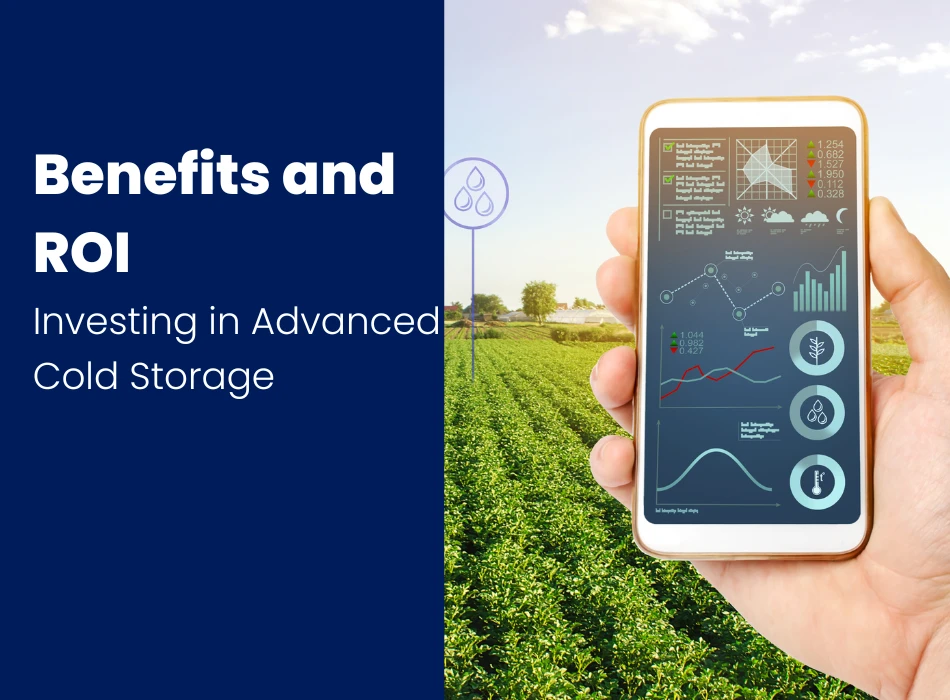Investing in Advanced Cold Storage: Benefits and ROI
Discover the benefits of investing in advanced cold storage solutions for your business. Learn about energy efficiency, product quality improvements, operational savings, and ROI calculations.

As the demand for perishable goods continues to rise, investing in advanced cold storage solutions has become essential for businesses across various industries. From food and beverage to pharmaceuticals, modern cold storage technologies not only enhance operational efficiency but also provide significant returns on investment (ROI). This article explores the benefits of advanced cold storage systems and how they can contribute to a company’s bottom line.
Key Benefits of Advanced Cold Storage Solutions
- Enhanced Energy Efficiency
Advanced cold storage technologies, such as Thermal Energy Storage (TES) systems, can reduce energy costs by up to 50%. These systems allow refrigeration units to cycle off during peak demand periods while maintaining stable temperatures, which leads to substantial savings on energy bills. For example, Viking Cold Solutions’ TES technology absorbs up to 85% of heat infiltration, enabling operators to avoid high demand charges while improving overall system efficiency by an average of 26%. - Improved Product Quality and Safety
Maintaining optimal temperature and humidity levels is crucial for preserving the quality of perishable goods. Advanced monitoring systems integrated with IoT technology allow for real-time tracking of environmental conditions within cold storage facilities. This capability ensures that any deviations from set parameters are promptly addressed, reducing the risk of spoilage and ensuring product safety. - Increased Operational Efficiency
Automation technologies, such as Automated Storage and Retrieval Systems (AS/RS), streamline operations by minimizing manual labor and improving accuracy in inventory management. These systems can significantly enhance throughput and reduce the time products spend outside controlled temperatures, ultimately leading to better resource utilization. - Sustainability and Reduced Environmental Impact
Many advanced cold storage solutions incorporate renewable energy sources, such as solar panels, and utilize energy management systems that optimize energy use based on demand. This not only lowers operational costs but also helps businesses meet sustainability goals by reducing their carbon footprint. - Flexibility and Scalability
Modern cold storage solutions are designed to be flexible and scalable, allowing businesses to adapt their storage capacity based on changing demands. This adaptability is particularly beneficial for companies experiencing seasonal fluctuations in inventory or those looking to expand their product lines. - Long-Term Cost Savings
While the initial investment in advanced cold storage technologies may be higher than traditional systems, the long-term cost savings from reduced energy consumption, minimized spoilage, and enhanced operational efficiency often outweigh these upfront costs. Businesses can expect a favorable ROI through improved productivity and lower operational expenses over time.
Calculating ROI on Cold Storage Investments
To effectively assess the ROI of investing in advanced cold storage solutions, businesses should consider several factors:
- Initial Investment Costs: Calculate the total costs associated with purchasing and installing new cold storage technology.
- Operational Savings: Estimate the expected reductions in energy costs, labor costs due to automation, and savings from reduced spoilage.
- Increased Revenue Opportunities: Consider how improved product quality and extended shelf life can lead to higher sales volumes and customer satisfaction.
- Payback Period: Determine how long it will take for the savings generated by the new system to cover the initial investment.
Conclusion
Investing in advanced cold storage solutions offers numerous benefits that can significantly impact a business’s profitability and sustainability efforts. By enhancing energy efficiency, improving product quality, increasing operational efficiency, and providing long-term cost savings, these technologies present a compelling case for businesses looking to stay competitive in a rapidly evolving market. As companies weigh their options for cold storage investments, focusing on both immediate needs and long-term goals will be key to maximizing ROI.